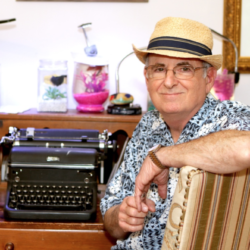There is hopeful movement on the recycling front, even though a national expert asserts it doesn’t go nearly far enough.
At the University at Buffalo, a new state Department of Environmental Conservation-funded research center will explore ways to make plastic recycling more effective. In Albany, legislators are ironing the kinks out of the Extended Producer Responsibility law, which provides incentives to manufacturers to use more sustainable and recyclable materials.
It’s been around since early 2021, but initially met with resistance and requests for exemptions. A new version of EPR is now working its way through the Assembly; an earlier Senate version is further along.
Both approaches demonstrate that solutions are being sought for a sadly broken recycling industry. The truth is that most well-meaning New Yorkers are conscientiously filling their blue bins every week, unaware that much of their “recycling” ultimately ends up in a landfill. It’s a problem. Paper and cardboard will break down relatively quickly. Plastic won’t.
Plastic’s recycling rate now stands at about 8.5 percent, compared to rates of 60 percent and more for cardboard and paper. A longtime expert in this field, Judy Enck, regional EPA administrator under President Obama and founder of the Beyond Plastics center housed at Vermont’s Bennington College, says, “Just as cars must meet fuel efficiency standards and appliances must include similar energy efficiency, all packaging should be required to meet environmental standards.”
It’s an essential point. Industries profit, in part, by pushing a share of their costs on to the public. It happens with pollution, for which taxpayers often foot the bill, and it happens with landfilling. Some better balance is needed. That requires legislation.
Enck is lobbying for a New York measure that would require a 50 percent reduction in plastic packaging over the next 10 years; at the end of that period, any packaging that does not meet this standard would no longer be sold in New York. It’s a big reach.
Enck does admit that an Extended Producer Responsibility law could generate fees that might help beleaguered municipalities, which have no control over how anything is packaged but still have to pay to process everything that goes into the bins, garbage or recycling.
According to those familiar with the Assembly version of EPR, the legislation includes plastic reduction requirements and does not depend solely on fees. It also takes a stand on the so-called “chemical recycling,” which is essentially incineration of plastics.
Studies of EPR bills that have taken effect in Canada and Europe show that, without reduction requirements, a fee-based system does little to reduce plastic pollution. New York should learn from those examples.
Anti-plastic activists would like to see the same kind of timed-out reduction in plastic manufacturing that’s proposed by New York’s Climate Action Plan, which envisions reducing greenhouse gas emissions by 80 percent by 2050. In their view, anything less is not acceptable.
Reality intrudes when we consider that a much more sweeping piece of federal legislation, Break Free From Plastic Pollution, was introduced in 2020, revised in 2021, and still faces formidable opposition from lobbying groups. After November’s midterm elections, its chances for passage may diminish.
Hope intrudes when we consider that most Americans plainly desire to end plastic pollution; that’s why they continue to fill up those bins, and, even better, increase their usage of containers that can be washed and refilled.
Meanwhile, UB’s New York Center for Plastic Recycling Research and Innovation will look for ways to improve sorting, processing and participation in recycling that actually does its job reducing waste. Even if EPR does not become law this year, UB may find solutions that accomplish some of its goals. That’s the thing about research — it’s supposed to lead to the questions that hadn’t been asked and the answers nobody had imagined.
Baby steps, but that’s mostly how change happens.
"difficult" - Google News
May 18, 2022 at 01:00AM
https://ift.tt/D1SLadg
Two state initiatives tackle the difficult goal of managing plastics - Brooklyn Daily Eagle
"difficult" - Google News
https://ift.tt/26qmuDW
https://ift.tt/ZnAdU4N
Bagikan Berita Ini

















0 Response to "Two state initiatives tackle the difficult goal of managing plastics - Brooklyn Daily Eagle"
Post a Comment